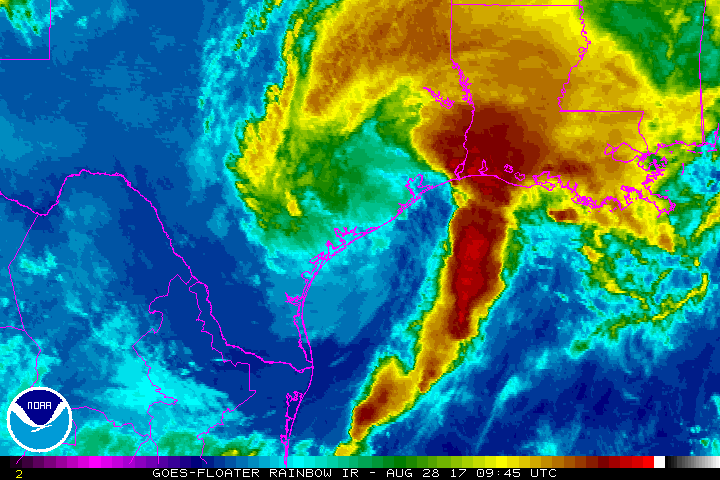 This satellite image shows Hurricane Harvey spinning on the Texas coast on August 28, 2017.NOAATwo feet of rain have fallen on Houston and other parts of East Texas since Tropical Storm Harvey made landfall Friday evening, August 25, as a Category 4 hurricane. As the downpour continues this week, researchers are waiting to see the full extent of the damage from historic levels of flooding.
This satellite image shows Hurricane Harvey spinning on the Texas coast on August 28, 2017.NOAATwo feet of rain have fallen on Houston and other parts of East Texas since Tropical Storm Harvey made landfall Friday evening, August 25, as a Category 4 hurricane. As the downpour continues this week, researchers are waiting to see the full extent of the damage from historic levels of flooding.
Thousands of people have been rescued from submerged streets and buildings, and many more will be forced from their homes. Major airports have been shut down since the weekend, some hospitals have evacuated patients, and numerous campuses posted closings, including the University of Houston and Rice University.
The University of Texas’s Marine Science Institute in Port Aransas experienced “extensive damage” from flooding, according to a press release. As The Scientist reported on Friday, researchers there were shoring up their labs in preparation for leaving their animals, equipment, and experiments for days.
No one can get in to deal with their experiments.—Adam Kuspa,
Baylor College of Medicine
“I would suggest that the city of Houston is almost in a paralyzed situation right now,” Robert Emery, vice ...




















